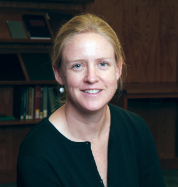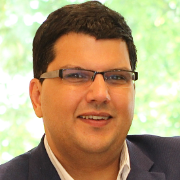The Dr. Patricia Canning Memorial Lecture in Child Health and Development
Dr. Patricia Canning, who dedicated her career to the improvement of child health and development, died after an extended struggle with cancer in 2015. In her memory, and with the support of her friends and family, this lecture series was formed. Its purpose is to invite a speaker with an international reputation in the area of child health and development to give a public lecture that would benefit not only the Memorial University community, but also the larger general public. A selection committee -- comprised of researchers and community members with a diverse range of interests and expertise -- annually endeavours to find such a speaker that also captures Dr. Canning's approach to research and real-world application of that knowledge.
See here for more information about the life of Dr. Patricia Canning.
Current Lecture
Oct. 5th, 2022, 7 p.m.
The Bruneau Centre for Research and Innovation Room: IIC-2001
Dr. Michael Ungar
Dalhousie University
Nurturing Resilience: Nine Ways Families and Schools and Communities Can Help Children
In this fast-paced, story-filled presentation, Dr. Ungar will show that our children’s resilience is much more than their individual ability to overcome adversity. It is just as much the result of how well their families, schools and communities work together to help vulnerable young people navigate their way to the resources they need for well-being, and whether those resources are made available to children in ways children experience as meaningful. In addition to exploring what resilience means to children from many different backgrounds, Dr. Ungar will also provide nine practical, evidence-informed strategies parents, caregivers and educators can use to help children heal, no matter a child’s emotional, psychological or behavioral problems
Dr. Michael Ungar is a professor of social work at Dalhousie University and the director of the Resilience Research Centre. He also holds a Canada Research Chair in Child, Family and Community Resilience.
Download the poster here.
Past Lectures
Oct. 24th, 2019, 7 p.m.
Innovation Hall, The Bruneau Centre for Innovation and Research (IIC-2001)
Dr. Frank Elgar
McGill University
Health Inequality in Children and Youth and the Wealth of Nations
Click here to download the poster.
Abstract: The odds that a child is healthy, happy and doing well in school all progressively improve as social class rises. This social pattern tracks strongly into adulthood and defines health inequities throughout life. In Canada, there are five- to ten-fold differences in the rates of some illnesses and a 10-year gap in life expectancy across socioeconomic conditions. Internationally, child and youth health varies depending on economic wealth and inequality. Using research on poverty, inequality, bullying, and corporal punishment, this talk examines the social and moral implications of health inequality in early-life, policy choices that shape opportunities to be healthy, and potential consequences of inaction.
Short Bio: Frank Elgar grew up in Woody Point, Newfoundland and received BA and MSc degrees in psychology from Memorial University and PhD in psychology from Dalhousie University. He worked in university and government settings in Canada and the UK, including the Cardiff Institute for Society, Health and Ethics, Welsh Assembly Government, University of Manitoba and Carleton University. He is presently an associate professor of psychiatry at McGill University’s Institute for Health and Social Policy and holds a Canada Research Chair in Social Inequalities in Child Health. His research examines threats to adolescent health and well-being, focusing on poverty, violence, inequality, and food security.
Oct. 11th, 2018, 7 p.m.
Innovation Hall, The Bruneau Centre for Innovation and Research (IIC-2001)
Dr. Stephanie Jones
Harvard University
The Science and Practice of Social, Emotional, and Character Development in Schools
Click here to download the poster.
Abstract: There is a growing body of evidence describing the critical role that social, emotional, and character skills and related interventions play in children’s mental health, behavioral, and academic success. However, those working with children in schools and other contexts are confronted with a large, sometimes confusing array of terms, definitions, and approaches. In this presentation Jones will review research on the nature, content, and efficacy of social and emotional learning as well as character-focused strategies and programs designed for early and middle childhood. She will describe new translational work designed to build connections between the major conceptual and practice-focused frameworks for the field, summarize a number of tensions in this area, and discuss the opportunities they present for future research and practice.
Short Bio: Dr. Stephanie Jones is a Professor of Education at Harvard’s Graduate School of Education. Dr. Jones' research, anchored in prevention science, focuses on the effects of poverty and exposure to violence on children and youth's social, emotional, and behavioral development. Over the last ten years her work has focused on both evaluation research addressing the impact of preschool and elementary focused social-emotional learning interventions on behavioral and academic outcomes and classroom practices; as well as new curriculum development, implementation, and testing. Jones is a recipient of the Grawemeyer Award in Education for her work with Zigler and Walter Gilliam on A Vision for Universal Preschool Education and a recipient of the Joseph E. Zins Early-Career Distinguished Contribution Award for Action Research in Social and Emotional Learning.
March 28th, 2017, 7 p.m.
Innovation Hall, The Bruneau Centre for Innovation and Research (IIC-2001)
Dr. Daniel Ansari
University of Western Ontario
Why Should Educators Care About Cognitive Neuroscience?
Abstract: Learning occurs through experience-dependent changes of connections within the brain. It therefore seems a 'no brainer' that the study of brain function and structure can and should inform education. Indeed much attention has been paid to the marriage between education and neuroscience marked by the emergence of new fields such as 'Educational Neuroscience' and 'Mind, Brain and Education'. The aim of this talk is to provide a critical overview of the potential for neuroscience (particularly cognitive neuroscience) to inform education and educational professionals. I will discuss challenges as well as opportunities in connecting cognitive neuroscience and education by reviewing different sources of evidence and their relative degree of educational relevance. Furthermore, I will discuss the proliferations of so-called 'brain-based' products that suffer from a complete lack of an evidence base and lead to the generation of 'neuromyths'. I will end by discussing future pathways towards a productive and bidirectional connection between education and cognitive neuroscience.
Short Bio: Dr. Daniel Ansari holds the Canada Research Chair in Developmental Cognitive Neuroscience and is a professor in the Department of Psychology and the Brain and Mind Institute at Western University. He was one of the first researchers in the world to use non-invasive brain-imaging devices to understand how children's brains process numbers, and how that brain activation changes with age. By doing that, he discovered how children's brains process numerical information differently than adults' brains, thus highlighting the importance of development. This discovery also raised the question of how these developmental processes go awry in children who have difficulties with math.



